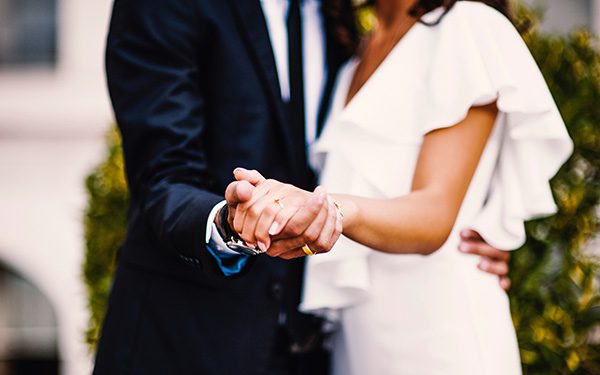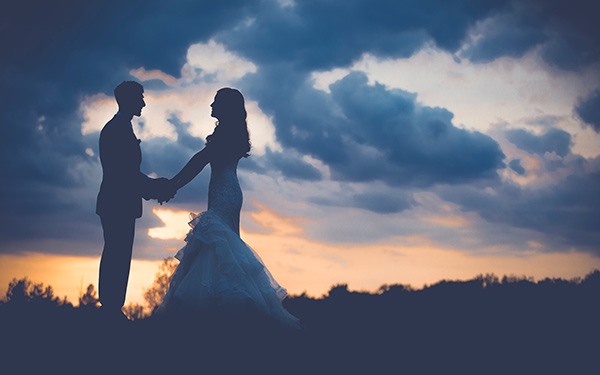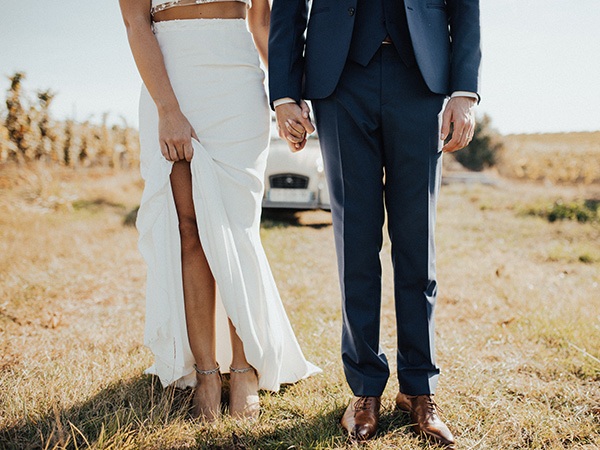Considering getting married in Thailand? Read this first.
Thailand is one of the world’s most romantic destinations, and whether you meet the love of your life here and want to get married, or if you wish to travel here for a dream wedding on a palm fringed tropical beach, there are certain protocols to follow to make sure everything runs smoothly.
Yes, there are marriage agencies that can handle the process for you, but using an agent can easily double or triple your costs, so many couples choose to arrange their marriage themselves.
Here’s our guide on how to get married in Thailand for foreigners, and for foreigners wishing to marry a Thai national…
Post Contents
How to Get Married in Thailand
A marriage between two foreigners in Thailand or between a foreigner and a Thai national will only be recognized as legal under the law of your home country if it is valid under Thai law.
Marriages in Thailand can be surprisingly quick and simple to organise, but it’s important you follow these 3 crucial steps so you get get hitched without a hitch…
Affirmation to Marry from your Embassy
No matter what your country of origin, you must get permission to marry from your country’s embassy in Bangkok — this is called an Affirmation of Freedom to Marry in Thailand.
British nationals will need to make an appointment at the embassy, and bring with them a valid passport, any death or divorce certificates if you have been previously married, and a completed affirmation form which can be downloaded online and printed to be filled out before the appointment.
Arrive on time and dress smartly.

If you are a foreigner marrying a Thai national, they will need to bring their Thai National Identification Card and Tabien Baan House Registration Document (their yellow or blue book).
The cost of the affirmation will depend on your particular embassy, but expect to pay between 2500 and 3500 THB.
Some district offices also require a certified copy of your passport, so it’s best to arrange for this at the embassy while you’re there.
Translation
Your next step is to have your Affirmation and certified copy of your passport translated into Thai.
There are hundreds of translation agencies all over Bangkok, but we’d recommend finding one that offers a translation and legalisation service — for a small fee, they will take the translation to the Ministry of Foreign Affairs and have it legalised for you. If you simply get it translated, then you will need to complete the legalisation process yourself (see the next step).
Recommended translation and legalisation services include Babel Translation in Sukhumvit and International Translations in Silom.
The cost of translations for the Affirmation and passport copy varies between 200-600 THB per page depending on where you go. Expect to add an additional 1,000 THB per document (includes the legalisation and agency fees) if you opt to have the agency complete the legalisation for you.
If you opt to do the legalisation yourself, you can get translations done downstairs at Chaeng Watthana Immigration, where the Ministry of Foreign Affairs is based.
NOTE: Make sure that you take your work permit, if you have one, to the translator as this will have the correct Thai spelling of your name. The district office are likely to decline your marriage registration if there is a discrepancy in the Thai version of your name on your translated affirmation/passport and in the one in your work permit.

Legalisation at the Ministry of Foreign Affairs
Assuming you choose to complete the legalisation aspect yourself, you will next need to take the original and translated versions of your Affirmation and certified passport copy to the Ministry of Foreign Affairs, which is situated within the Chaeng Watthana Immigration Complex.
The best way to get there is to take the BTS to Mo Chit and then hail a taxi to ‘Chaeng Watthana Immigration’ when you exit.
If your documents haven’t already been translated, this can be done on site by one of the translation companies on the lower floor of the complex for an additional fee. Expect to pay a little more here for translation compared to the ones in town.
You’ll then need to take a number and wait in line for an officer to check and legalise your documents — this part of the process may take up to 72 hours so be prepared to come back in two days.
There is a fee of around 200 THB for the legalisation of each document. As soon as you have received your certified passport translation and affirmation, it’s time for the next step.
Registration at the District Office
The District Office or Amphur is the where you must officially register the marriage with the registrar.
Some District Offices require you to make an appointment in advance.
Bang Rak District Office, for instance, which is the most popular place for foreigners to register their marriages, requires that you visit the office in advance with all your papers so they can check that everything is in order. Once your paperwork has been checked, you will be able to make an appointment for the marriage registration.
Without an appointment, you’ll need to turn up before the office opens — around 7am — in order to get in line and wait for an on-the-day opening. The office only performs around 5 registrations per day, so you’re not guaranteed a spot without an appointment.
Registration makes the marriage legally binding, and requires presentation of a number of different documents, including 2 copies of each foreigner’s passport (including photo page, visa page, entry stamp and departure card) and work permit, plus the original Affirmation and certified copy of your passport, plus their legalised translated versions.
Not every District Office requires the certified copy of your passport, but the one at Bang Rak in Silom — the most popular Amphur for foreigners — definitely does.
If you are a foreigner marrying a Thai national, your partner will also require 2 copies of his or her ID card, and 2 copies of his or her Tabien Baan House Registration Document.
You will also require 2 Thai witnesses who can be friends or family of your choosing. Make sure that at least one of your witnesses can act as a translator for you to explain each process and what you’re signing in English.
Some District Offices can provide witnesses for you although busy Amphurs like Bang Rak require you to bring your own.
Once all documentation has been provided and the paperwork signed, you will be issued your authentic marriage certificate to say that you are officially man and wife.

Marriage certificates are issued in the Thai language, so it is worth visiting a translation service again to get the certificate translated into English and then returning to the Ministry of Foreign Affairs to have the translated certificate verified and made official for future use. Again, it’s possible to opt for a translation and legalisation service for an extra fee, if you want to save yourself some time.
Depending on your country of origin you may be required to present both an original and translated marriage certificate at your country’s embassy in Bangkok, or in your home country, in order to finalise the union, making it fully legal. This is not a requirement for British citizens.
Any questions about getting married in Thailand?


